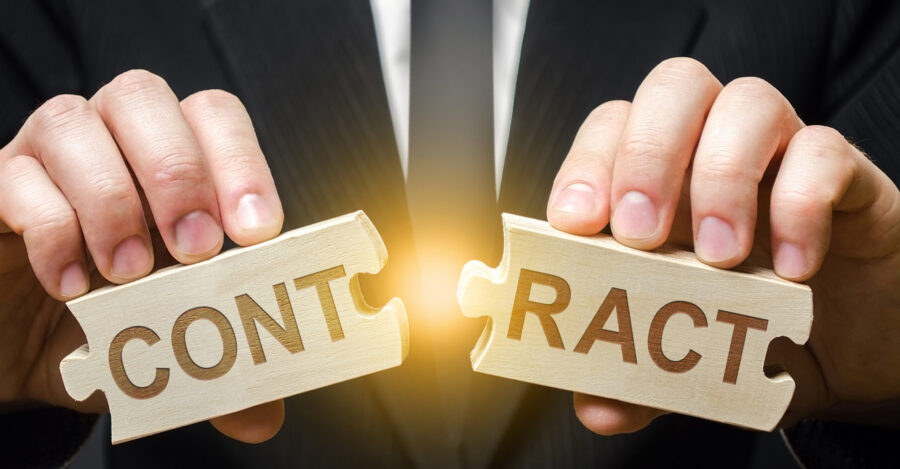Lease Violations and Eviction: Understanding Breach of Contract
A landlord owes certain obligations to a tenant, just like they have certain rights and expectations under the agreement. Not only must a landlord give their tenant certain specific protections under South Carolina landlord-tenant law, but they also have contractual safeguards as well. If the landlord violates any of these rights, whether express or implied, they could be liable to the tenant for damages in a lawsuit. At the same time, the landlord also can expect that the tenant will pay rent and abide by the other conditions of the lease. Know that the lease is a two-way street, and both parties may face consequences for their failure to abide by the agreement or the terms of the South Carolina Residential Landlord and Tenant Act.
The Lease Is a Binding Contract Between the Landlord and Tenant
A lease is a written contract between the landlord and the tenant. The lease will contain the terms that each party must follow. The landlord and the tenant are free to negotiate their own contract, subject to certain limitations under South Carolina law. Like any other contract, any terms that are illegal cannot be enforced, and it would be as if they do not exist.
In exchange for the rent paid, the landlord has a legal obligation to provide the renter with a habitable premises. If the landlord fails to uphold their end of the agreement, they could be liable in a breach of contract lawsuit. Under the contract, the landlord must do things like:
- Comply with South Carolina building and housing codes
- Make repairs to the property as necessary
- Keep the rental unit in livable condition
When the tenant notifies the landlord that they must make certain repairs or restore the premises to habitable condition, the landlord has 14 days to remedy any violations. If the landlord does not make these repairs, the tenant may even vacate the property once they give the proper notice to the landlord.
In addition to the obligation of paying rent by the date specified in the contract, the landlord can impose other restrictions on the tenant in how they can use the property. The landlord can require that the tenant not harm the landlord’s property or interfere with other tenants. If the tenant fails to follow these requirements and rules, they can face eviction by the landlord. The tenant can be evicted for more than just the nonpayment of rent. The landlord’s remedy when the tenant breaches the contract is to begin the legal process that could remove the tenant from the property.
There Are Implied Duties Under a Lease
The fact that a lease is a written contract means that each party will have their own implied duties. Not every obligation of the landlord is laid out in writing in the four corners of the contract. For example, the landlord owes the tenant the implied covenant of quiet enjoyment of the property. The covenant imposes restrictions on the landlord. They cannot interfere with the tenant’s exclusive use of the property. While the landlord does have the right to impose certain restrictions in accordance with the lease, they also cannot interfere with the tenant’s peace, privacy, and comfort.
Contact a South Carolina Landlord-Tenant Attorney Today
Landlords should consult with an experienced attorney when the tenant is accusing them of breach of contract. The tenant may have an attorney of their own, and the landlord could be facing legal consequences. Contact the experienced attorneys at Crawford & von Keller to discuss your legal matter. Reach out to us to schedule a free initial consultation.



